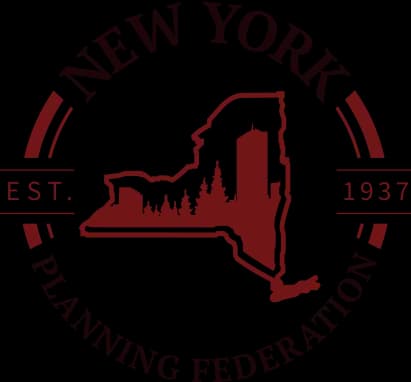Key Housing & Planning Legislation in Other States (2025)
New Jersey
Senate Bill 3353
Senate Bill 3353 (1R) amends the Right to Farm Act to formally allow full-time, non-owner, non-family resident farm employees to live on commercial farm premises, directing the State Agriculture Development Committee to establish an agricultural management practice enabling this housing. The on-site housing, which must align with labor needs and is provided rent-free, thereby becomes eligible for “Right to Farm” protection against nuisance actions. The bill passed the Senate in a decisive 34–2 vote on January 30, 2025, later passed the Assembly (substituted for A4501) with a 71–4 vote on March 24, 2025, and was signed into law by the governor on May 9, 2025.
https://www.njleg.state.nj.us/bill-search/2024/S3353
Senate Bill S4451
Senate Bill S4451, sponsored by Senators Troy Singleton and Benjie Wimberly, simplifies and clarifies municipal master plan requirements by relocating and consolidating housing-related mandates from the Fair Housing Act into New Jersey’s Municipal Land Use Law (MLUL). The bill requires that every municipal master plan formally include both a land use plan element, detailing how land use aligns with housing strategies, redevelopment status, density, environmental resilience, and infrastructure and a housing plan element, which must now evaluate housing needs broadly (including affordable and “missing middle” options), consider redevelopment of underutilized sites, coordinate with transit and services, and integrate statewide planning objectives. It passed the Senate with a 23–14 vote on June 30, 2025, and is currently under review by the Assembly Housing Committee.
https://www.njleg.state.nj.us/bill-search/2024/S4451
Senate Bill S4615
Introduced on June 19, 2025, S4615 aims to bolster family homeownership by placing reasonable restrictions on institutional investors in New Jersey’s single-family home market. The bill prohibits such investors from contacting homeowners or submitting bids during the first 90 days a home is listed. If investors bypass this restriction, they face a hefty $25,000 per property annual tax, with the proceeds funneled to the New Jersey Housing and Mortgage Finance Agency for first-time homebuyer assistance. S-4615 also includes key incentives such as down payment support, shorter approval timelines for starter home developments, expedited inspections, a homebuying guide and awareness campaign, income tax deductions for eligible first-time buyers, and the establishment of a “Starter Home Development Incentive Program” via the NJ Economic Development Authority. As of now, the bill remains in committee for further consideration.
https://www.njleg.state.nj.us/bill-search/2024/S4615
Assembly Bill A4913
Introduced on October 17, 2024, the bill establishes targeted state funding preferences for municipalities that actively enhance housing development opportunities essentially creating an incentive structure to encourage local growth of housing supply. After favorable reviews from the Assembly Housing and Community Development Committee and Assembly Appropriations Committee, it passed the Assembly on May 22, 2025. The bill was then received in the Senate on May 29, 2025, and referred to the Senate Community and Urban Affairs Committee for further deliberation. A4913 reflects a intentional shift toward rewarding municipalities that take proactive measures to support housing needs, aligning planning goals with fiscal incentives though it has not yet passed the Senate nor been enacted into law.
https://www.njleg.state.nj.us/bill-search/2024/A4913
Massachusetts
S.2542
(An Act to Build Resilience for Massachusetts Communities)
Senate Bill S 2542, also known as the Mass Ready Act, represents a comprehensive environmental bond bill deliberately structured as an emergency law to expedite its impact on climate resilience and housing-related infrastructure. It authorizes billions in capital investment (up to $2.9 billion) aimed at bolstering infrastructure, protecting water systems, and safeguarding natural lands by June 2032. Key measures include up to $600 million dedicated to flood control and coastal resilience (e.g., upgrading dams, seawalls, and nature-based buffers), and, notably, it mandates flood-risk disclosure in real estate transactions. The Act overhauls permitting and appeals, streamlining approval for resilience-focused projects such as housing developments and nature-based solutions, and expands the Building Code Board’s regulatory capacity by adding seats for experts in climate risk, housing, and resilient design. As of July 2025, S 2542 stands introduced and is under review by the Joint Committee on Environment and Natural Resources, with a hearing scheduled mid-July.
https://malegislature.gov/Bills/194/S2542
Pennsylvania
House Bill 344
Introduced on January 27, the Bill proposes an amendment to the Landlord and Tenant Act of 1951 to enhance transparency around parking fees in rental agreements. Under the bill, landlords must clearly state in the lease whether parking is provided and, if so, specify any associated fees. Importantly, once set, landlords cannot add or alter parking charges during the lease term ensuring renters are protected from unexpected cost increases. If a landlord violates this provision, tenants can file a complaint with a lower court, and if the court finds a breach, the landlord must cover all parking expenses incurred by the tenant for the remainder of the lease term. The bill is currently pending review by the Housing & Community Development Committee in the House.
https://www.palegis.us/legislation/bills/2025/hb0344
House Bill 844
Introduced on March 10, 2025, the Bill proposes a significant amendment to the Housing Finance Agency Law. The bill authorizes the creation of a Housing Construction Loan Program and corresponding Housing Construction Loan Fund, empowering the Pennsylvania Housing Finance Agency to facilitate affordable housing development through flexible financing tools. Designed to incentivize the construction of affordable homes, this legislation equips the agency with enhanced capacity to underwrite loans, manage funding allocations, and support municipalities or developers in expanding housing supply. The bill has been referred to the House Housing & Community Development Committee and is currently under early-stage legislative consideration.
https://www.palegis.us/legislation/bills/2025/hb0844
Senate Bill 803
Introduced on May 30, 2025, the bill establishes the First-Time Homebuyer Savings Account program, designed to help prospective first-time homeowners save for down payments and closing costs in a tax-advantaged way. The bill creates both the First-Time Homebuyer Savings Account Program and its accompanying Fund, to be administered by the Pennsylvania Treasury Department. These accounts allow individuals and joint account holders filing jointly to contribute up to $50,000 (or $100,000 for joint filers), with annual contributions capped at $5,000 (or $10,000 jointly), and eligible for state income tax deductions. Withdrawals used for home purchases are tax-exempt. Other uses would result in penalties and taxable income. The Treasury may contract for account management and must safeguard the Fund’s investment, operational, and administrative functions. The bill has been referred to the Urban Affairs & Housing Committee and remains under early review.
https://www.palegis.us/legislation/bills/2025/hb0803
House Bill 607
Introduced on February 12, 2025, the Bill proposes amending Pennsylvania’s Landlord and Tenant Act of 1951 to restrict residential evictions during a declared disaster emergency. Under this bill, tenants would be shielded from eviction when formal emergency conditions are in effect. Landlords who violate this provision would face monetary penalties, providing a deterrent against unlawful displacement during crises. The legislation has garnered support from a broad coalition of Democratic co-sponsors and is currently under review in the House Housing & Community Development Committee. This measure suggests growing recognition of housing stability as essential during emergencies and aims to safeguard vulnerable tenants from sudden loss of shelter in times of statewide or local crises.
https://www.palegis.us/legislation/bills/2025/hb0607
House Bill 1003
Introduced on March 24, 2025 by Representative Carol Hill-Evans and supported by a broad group of Democratic co-sponsors, the Bill proposes establishing the Veterans’ Housing Assistance Program aimed at tackling veteran homelessness. Under the bill, the Pennsylvania Housing Finance Agency (PHFA) and the Department of Military and Veterans Affairs (DMVA) would collaborate to identify veterans who are homeless or at risk and connect them with support. The PHFA would appoint a housing ombudsman to advocate on behalf of veterans navigating the housing system. Eligible veterans could receive rental vouchers up to $1,000 per month for 12 months, with possible renewal combined with optional support services including mental health counseling, substance use treatment, and job training. The bill was referred to the House Housing & Community Development Committee for consideration.
https://www.palegis.us/legislation/bills/2025/hb1003
Maryland
Senate Bill 327
Titled the Affordable Housing Payment In Lieu of Taxes Expansion Act and sponsored by Senator Shelly Hettleman, the Bill authorizes counties to enter into Payment in Lieu of Taxes (PILOT) agreements with rental property owners who designate at least 25% of units as affordable dwelling units for 15 years (defined as costing no more than 30% of the income of households earning 60% or less of the area median income). The law also permits counties to negotiate higher affordability thresholds if desired.
https://mgaleg.maryland.gov/mgawebsite/Legislation/Details/SB0327
House Bill 716
The Bill expands and strengthens Maryland’s Statewide Rental Assistance Voucher Program by incorporating the Department of Housing and Community Development (DHCD) into the definition of a public housing agency. This adjustment allows DHCD to administer vouchers in line with local administrative plans and to project-base up to 100% of its allocated voucher units, providing communities with greater flexibility. The bill also revises voucher and assistance payment prioritization for certain families to better match needs and equity goals. After passing the House (103–34) and the Senate where it was amended (33–13), HB 716 was approved by the Governor on April 22, 2025 and enacted as Chapter 234.
https://mgaleg.maryland.gov/mgawebsite/Legislation/Details/HB0716
House Bill 585
Sponsored by Delegate Julie Palakovich Carr, the Bill ensures that affordable housing developments financed through the federal Low-Income Housing Tax Credit (LIHTC) receive a fair and lower property tax valuation. The bill mandates that, within 30 days of closing and executing the regulatory agreement, the Department of Housing and Community Development (DHCD) must notify the State Department of Assessments and Taxation (SDAT) that the property has been awarded LIHTC status. This allows SDAT to apply adjusted valuation methods—such as capitalizing anticipated net operating income rather than tax credits—when assessing the property. The House passed the bill 136–4, the Senate unanimously approved it 46–0, and the Governor signed it into law as Chapter 67 of 2025.
https://mgaleg.maryland.gov/mgawebsite/Legislation/Details/HB0585

